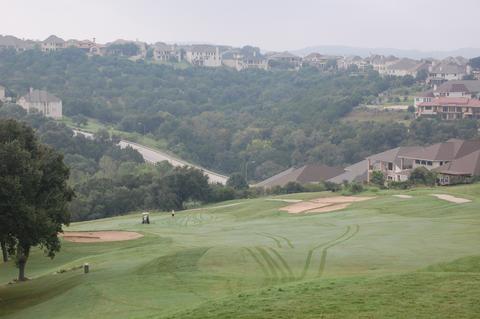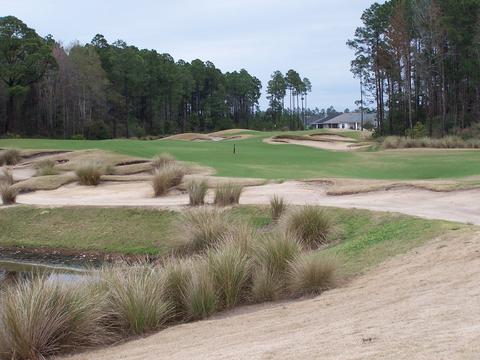
Texas is the 7th fastest growing state, thanks to no state income tax and still reasonable real estate prices. Austin is growing as fast as the rest of the state, thanks to attractive golf communities like River Place.
It used to be that water and climate were the strongest attractions for retirees and others seeking a better life. But the latest U.S. Census Bureau report indicates that residents of California and Florida are paddling out of state at the same rate as those moving in. (We commented initially on the report here a couple of days ago; scroll down for the article.)
The states immediately to the east of California are gaining new residents at a faster rate than is the Golden State. Indeed, Nevada, Utah, Arizona and Idaho grew the fastest of the 50 states from July '06 to July '07. However, Nevada's and Arizona's growth rates were considerably less than in the prior year, reflecting the housing inventory issues in overbuilt Las Vegas and Phoenix, respectively. At .8%, California was the only state west of Kansas that grew at less than the overall national growth rate of 1%, and most of that increase was due to births.
Where is everyone going? Besides the aforementioned Mountain States, only Texas, North Carolina and Georgia grew at rates above 2% in the year-to-year time period. Wyoming and Colorado grew at an even 2.0%. Only Virginia, Mississippi and Alabama among the southeastern states grew at less than 1% (I don't count Maryland or Delaware in the southeastern group, but Delaware actually grew at 1.4%, Maryland at a mere .3%).
South Carolina, where I own a second home, grew at a healthy 1.8%, and although we haven't seen a city-by-city or county breakdown of the numbers for the state, we have noted that construction continues in the Myrtle Beach area even as some residential builders declare troubles. In March, for example, the first occupants will move into homes around Market Commons, a large retail/office/residential complex on the site of a former U.S. Air Force Base less than two miles from Myrtle Beach's commercial airport. Two-dozen golf courses are within a 20-minute drive, and golf course closings, which had reached epic proportions in the last few years, seemed to have slowed to zero for the time being. An example of New Urbanism, Market Commons provides its residents the opportunity to work, shop and be entertained substantially where they live, without starting their cars. Somewhere, Al Gore is smiling.
Michigan and Rhode Island also demonstrated that abundant water is not enough to overcome faltering economies. The two states were the only ones to lose population in the last year, although tiny Rhode Island lost just a net 3,800 citizens. For those contemplating owning homes both north and south, Rhode Island is not a bad choice for the northern complement. Providence, with its excellent colleges and surprisingly busy airport, is an interesting town with good restaurants and cultural attractions, and the excellent golf throughout the state ranges from public (like the funky Donald Ross-designed Triggs Memorial in Providence) to the ultra-private Newport Country Club, site of the LPGA Open year before last. Carnegie Abbey, a high-end residential complex with a lush private golf course, may appeal to the hedge fund manager in you, with price points that begin just short of seven figures.
Florida's growth rate slowed to 1.1%; a whopping 135,000 fewer residents migrated to the state than did the year before. If unoccupied condominiums were counted as people, Florida might have given Louisiana (+1.2%) some competition, but almost as many folks are moving north on I-95 as are going south. Those who plan to relocate to the Sunshine State in a few years had best keep an eye on the property tax structure in the no-income-tax state as well as further escalations in insurance rates. And for those who like to get out and about, check traffic reports every once in a while. The state's roads are a mess.

Jacksonville doesn't seem like much of the rest of Florida. It features reasonable real estate prices and manageable traffic. The golf was good too, including the surprisingly testing Palmer layout at North Hampton.























